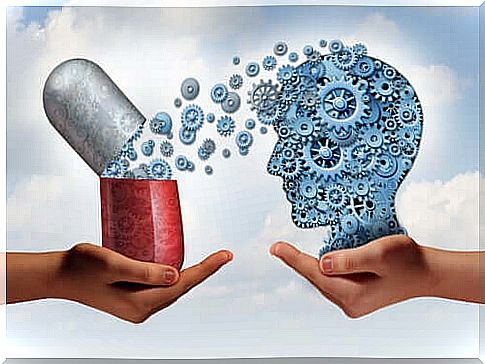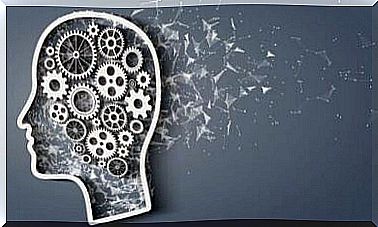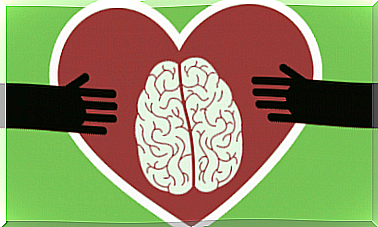The Need For Synergy Between Psychological Therapy And Medication

The use of psychological therapy and drugs to treat psychological disorders has always been the subject of debate. Psychological therapy has been shown to have longer lasting results than medication. The reason is that in therapy the patient is taught to cope with the situation. We help them identify inaccurate or negative thoughts and then give them the tools to challenge and replace those beliefs.
In addition, these methods provide skills that last a lifetime. It makes the person feel better. But it also gives him a foothold if his stressors reappear at some point in the future.
Unlike the potential of some drugs, psychological therapy is not addictive. In addition, some studies have shown that cognitive behavioral therapy may be more effective than medication in relieving anxiety and depression.
However, there are cases which, due to their severity or peculiarity, require a good synergy between psychological therapy and medication. Medication, psychotherapy and their combination have also been shown to help people with emotional or behavioral problems. The choice of treatment should be based on the available scientific evidence. But also on the willingness of the patient himself to try and follow these treatments.

Psychological therapy and drugs: proof of their “good relationship”
Currently, an effort is being made to systematize the association between CBT and psychopharmacology. Here are the advantages of this combination for the treatment as a whole:
- The positive synergies between the two options were unlocked, thanks to pharmacological speed, communication skills, motivation, focus and memory. The patient is installed in a behavioral and cognitive position which allows him to assume the tasks proposed by the CBT
- CBT can increase pharmacological compliance in somatic and mental illnesses. CBT can “fix” adhesion and even neutralize pharmacological “safety signals” that interfere with the positive effects of CBT.
- De Pablo proposes a “behavioral prescription of the drug” with implications on two levels
- a) when considering pharmacology as a therapeutic act within the broader framework of overall treatment. We must therefore avoid considering psychopharmacology as fundamental and CBT as secondary.
- b) when psychopharmacology is used as a procedure for change, it may require other measures, such as cognitive and behavioral variations, which will facilitate the understanding of the full meaning of the treatment
- CBT allows the drug to be “withdrawn” under more appropriate conditions than simple tapering without a protective net. This reduces the risk of relapse. Relapses after withdrawal or inadequate tapering of psychotropic drugs were less common in patients undergoing CBT as sequential or combined therapy
- In cases where there is a personality disorder, all of these assumptions can be complicated:
- Paranoid people reject drugs
- Avoiders or addicts adhere excessively to both types of treatment
- The suggestibility of the histrionic and the omnipotence of the narcissists complicate the two propositions
Evidence of good results from the combination of psychological therapy and drugs
- For depression, two types of psychotherapy called cognitive behavioral therapy and interpersonal psychotherapy, as well as certain pharmacologies, have been shown to be helpful. There is evidence that the combination of psychotherapy and medication may be more effective than either treatment alone, although in the long run it appears that psychological therapy gives the best guarantee of success. Suicidal people may need to enter a hospital
- For anxiety disorders, cognitive behavioral therapy, antidepressants, and anxiety medications have been found to be helpful. Most of the research collects data that supports the hypothesis that psychotherapy is more effective than medication . Adding drugs does not significantly improve the results of psychotherapy alone
- For alcohol and drug use disorders, cognitive behavioral therapies and environment-based support programs have been shown to be helpful. People with severe substance abuse problems may also benefit from the addition of certain medications that reduce cravings or the effects of intoxication.
- For eating disorders, medical attention may be required to maintain physical safety. CBT, interpersonal psychotherapy, and antidepressant medications have been found to be helpful. Some evidence suggests that a combination of psychotherapy and medication may be more effective than either treatment alone.
- Most people with schizophrenia or bipolar disorder will need treatment with antipsychotic or mood stabilizing drugs. Research suggests adding cognitive behavioral or family psychotherapy to treatment may improve functional outcomes
- For problems related to parenthood, marriage or adjustment, psychotherapy is often the first recommendation. This treatment can help develop skills and respond more appropriately to stressors

Personalized psychological and pharmacological treatment
- Everyone responds to treatments differently. Therefore, if one treatment is not effective, one should try to add the other. Research shows psychotherapy can be helpful even for people who don’t respond well to medication
- Psychotherapy and medication require careful application and monitoring. Results don’t usually happen overnight. Therefore, the patient should only start treatment if he is ready to continue it long enough.
- Patients are more likely to get involved in treatment that is meaningful to them. It is therefore important to discuss the treatment in depth with the practitioner, who must explain it so that the patient can understand it.
Conclusion
According to several authors, the combined treatment would be superior to any of the isolated therapies though. ..
- It increased the magnitude of the patient’s favorable response
- It increased the probability and amplitude of the response as a function of the synergies of the two modalities
Thus, combination therapy might be more acceptable, both in terms of promoting adherence (CBT) and accelerating response (psychopharmacology).









